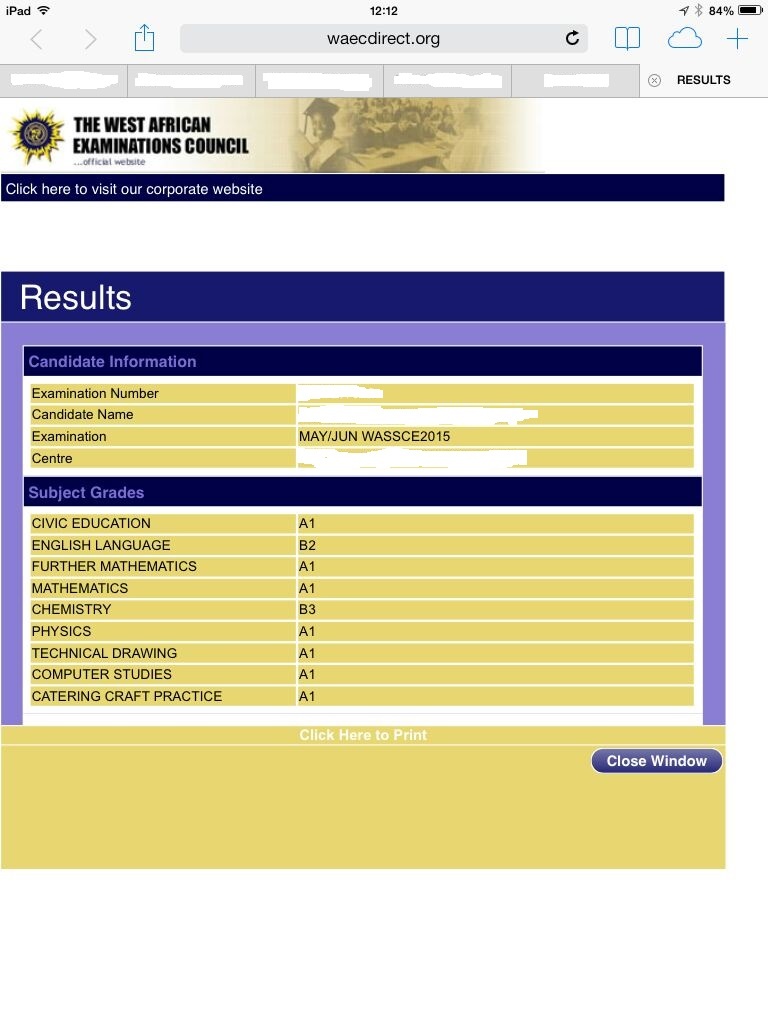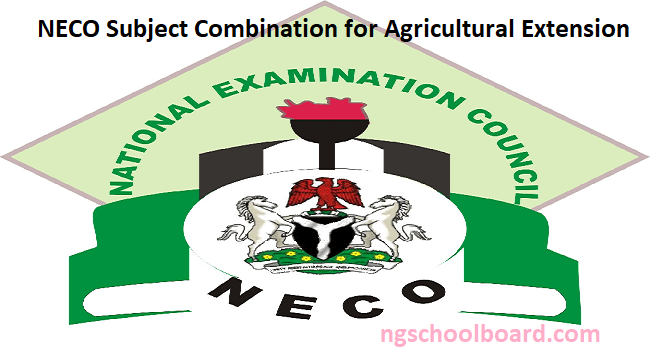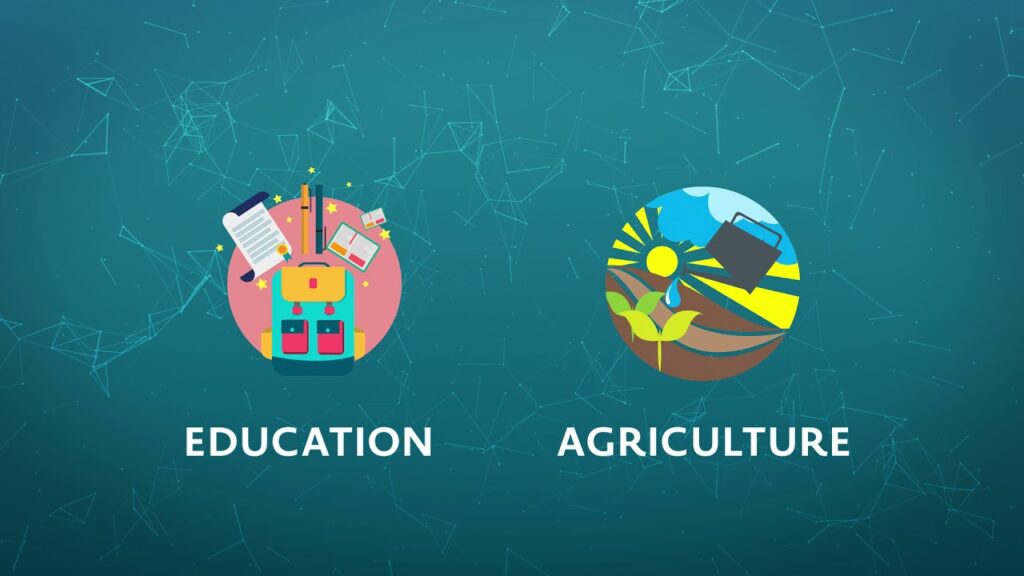In this post titled Subject Combination for Agricultural Extension, I am going to cover every piece of information you need to know on JAMB, UTME, WAEC, NECO, and Direct entry subject combination.
So therefore if you are looking for admission into any university in Nigeria and wish to know the Agricultural Extension O’Level Subjects and Requirements; Agricultural Extension Direct Entry Subject and Requirements, and Agricultural Extension UTME Subjects Combination, this post will explain it all to you.
See Subject Combination for Dental Technology

Let’s proceed with the introduction Agricultural Extension
What is Agricultural Extension
Agricultural extension is a system of training and support services that helps farmers, ranchers, and other agricultural producers increase their productivity, profitability, and sustainability.
The purpose of agricultural extension is the transfer of knowledge and technology from research institutions and other sources to the agricultural community with the aim of improving agricultural practices, increasing yields, reducing costs, and minimizing risks.
The agricultural extension also involves the use of various communication channels such as radio, television, mobile phones, and the Internet to disseminate information and support farmers and other agricultural stakeholders.
The ultimate goal of agricultural extension is to help farmers adopt and implement innovative and sustainable agricultural practices that can increase their incomes, improve their livelihoods and contribute to food security and rural development.
Admission Requirements for Agricultural Extension
The Joint Admissions and Matriculation Board (JAMB) requires candidates seeking admission to study Agricultural Extension to have a minimum of five (5) O’level credit passes in subjects that include:
- English Language (compulsory)
- Mathematics (compulsory)
- Chemistry
- Biology/Agricultural Science
- Any other relevant subject
JAMB subject combination for Agricultural Extension

For the UTME (JAMB) examination, candidates for Agricultural Extension are required to sit for four (4) subjects which should include:
- English Language (compulsory)
- Chemistry
- Biology/Agricultural Science
- Any other relevant subject
It is important to note that some universities may have specific subject requirements for Agricultural Extension beyond what is required by JAMB. Therefore, candidates are advised to check the specific requirements of their chosen universities before applying.
SSCE Subject Combination for Agricultural Extension

To study Agricultural Extension at the Senior Secondary School level, the following subjects are required:
- English Language (compulsory)
- Mathematics (compulsory)
- Chemistry
- Biology/Agricultural Science
- Any other relevant subject
It is important to note that some schools may have specific subject requirements for Agricultural Extension beyond what is listed above.
Therefore, it is advisable for students to check the specific requirements of their school before selecting their subjects.
WASSCE/WAEC Subject Combination for Agricultural Extension

To study Agricultural Extension at the West African Senior School Certificate Examination (WASSCE) or West African Examination Council (WAEC) level, the following subjects are required:
- English Language (compulsory)
- Mathematics (compulsory)
- Chemistry
- Biology/Agricultural Science
- Any other relevant subject
It is important to note that some universities and colleges of education may have specific subject requirements for Agricultural Extension beyond what is listed above. Therefore, it is advisable for students to check the specific requirements of their chosen institution before selecting their subjects.
NECO Subject Combination for Agricultural Extension

To study Agricultural Extension at the National Examination Council (NECO) level, the following subjects are required:
- English Language (compulsory)
- Mathematics (compulsory)
- Chemistry
- Biology/Agricultural Science
- Any other relevant subject
It is important to note that some universities and colleges of education may have specific subject requirements for Agricultural Extension beyond what is listed above. Therefore, it is advisable for students to check the specific requirements of their chosen institution before selecting their subjects.
Direct Entry Admission

Direct Entry admission is a mode of entry into Nigerian universities and some polytechnics for candidates who possess a diploma or degree certificate from a recognized institution.
Direct Entry candidates are admitted into 200 level in Nigerian universities and 200/300 level in polytechnics, depending on the course of study.
To be eligible for Direct Entry admission, candidates must possess the following:
- A recognized diploma certificate from a polytechnic or college of education, or a degree certificate from a recognized university.
- A minimum of 5 O’level credit passes in relevant subjects, including Mathematics and English Language.
- A JAMB Direct Entry Registration form and JAMB Direct Entry admission letter.
- A transcript from the candidate’s previous institution showing evidence of completion of the programme.
- Meeting the specific admission requirements of the chosen institution and course of study.
Direct Entry candidates are also required to undergo a screening exercise which usually includes academic qualification screening and possibly an interview.
It is important for candidates to note that the requirements and processes for Direct Entry admission may vary slightly from institution to institution, and they are advised to check the specific requirements of their chosen institution before applying.
A’Level Admission requirements

A’Level admission requirements are the minimum academic standards and criteria that candidates must meet to be considered for admission into Nigerian universities and some polytechnics through A’Level programs.
A’Level programmes are usually one to two-year programmes that prepare candidates for Direct Entry admission into 200 level of their chosen course of study.
The following are the general A’Level admission requirements for Nigerian universities:
- A minimum of 5 O’level credit passes in relevant subjects, including Mathematics and English Language.
- A JAMB Direct Entry Registration form and JAMB Direct Entry admission letter.
- A’Level certificate or equivalent from a recognized institution.
- Meeting the specific admission requirements of the chosen institution and course of study.
- A minimum of two A’Level subjects or equivalent, including the subjects relevant to the course of study.
- Candidates who have completed their A’Level programmes in Nigeria are required to have obtained the Joint Universities Preliminary Examinations Board (JUPEB) certificate, while those who have completed their programmes outside Nigeria are required to have obtained Advanced Level GCE, Cambridge International Examinations (CIE) or International Baccalaureate (IB) certificates.
It is important for candidates to note that the requirements and processes for A’Level admission may vary slightly from institution to institution, and they are advised to check the specific requirements of their chosen institution before applying.
OND Admission requirement
OND (National Diploma) admission requirements are the minimum academic standards and criteria that candidates must meet to be considered for admission into Nigerian polytechnics for a National Diploma programme. The following are the general requirements for OND admission:
- A minimum of 5 O’level credit passes in relevant subjects, including Mathematics and English Language.
- A minimum JAMB UTME score of 120 (for public polytechnics) or 100 (for private polytechnics).
- Candidates must have chosen the polytechnic as their first or second choice during the UTME registration process.
- Candidates must have completed the UTME registration process and possess a JAMB registration number.
- Candidates must obtain the required minimum score in the polytechnic’s Post-UTME screening exercise.
It is important to note that some polytechnics may have specific requirements for OND admission beyond what is listed above. Therefore, it is advisable for candidates to check the specific requirements of their chosen polytechnic before applying.
Why Are these subjects Compulsory?
To study Agricultural Extension at Nigeria University, the following subjects are required:
English Language: This subject is required as it helps to develop strong communication skills, which are important for conveying agricultural concepts and ideas to others.
Mathematics: Mathematics is an essential subject for studying agricultural extension. You will need to have a strong foundation in mathematics, including topics like algebra, calculus, and statistics.
Agricultural Science: Knowledge of agricultural science is essential for understanding the principles of crop and animal production, and the environmental and resource issues that affect agriculture.
Biology: Biology provides a strong foundation in principles of life science and anatomy, which are important for understanding the biological processes involved in plant and animal production.
It is also recommended to have a good foundation in communication and social sciences, as agricultural extension involves working closely with farmers and communities to promote sustainable
agricultural practices.
Overall, a strong background in mathematics, agricultural science, biology, communication, and social sciences is essential for studying agricultural extension at the university.
Here is a list of universities in Nigeria offering Agricultural Extension as a course of study:
- Ahmadu Bello University, Zaria (ABU)
- Federal University of Agriculture, Abeokuta (FUNAAB)
- Federal University of Agriculture, Makurdi (UAM)
- Michael Okpara University of Agriculture, Umudike (MOUAU)
- University of Agriculture, Makurdi (UAM)
- University of Benin, Benin City (UNIBEN)
- University of Calabar, Calabar (UNICAL)
- University of Ibadan, Ibadan (UI)
- University of Ilorin, Ilorin (UILUG)
- University of Jos, Jos (UNIJOS)
- University of Maiduguri, Maiduguri (UNIMAID)
- University of Nigeria, Nsukka (UNN)
- University of Port Harcourt, Port Harcourt (UNIPORT)
Note that this list is not exhaustive and there may be other universities in Nigeria offering Agricultural Extension as a course of study.
It is recommended that you confirm directly with each university for further details.
What can you do with Agricultural Extension Certificate?

An Agricultural Extension Certificate can work in a variety of agricultural fields. Some of the job opportunities available for agricultural extension certificates are:
Agricultural Extension Officer: Agricultural Extension Certificate holders can work as extension officers in government agencies or NGOs. Extension officers provide technical advice and support to farmers and help disseminate new techniques and best practices in agriculture.
Farm Manager: Agricultural Extension Certificate holders can work as managers in agricultural enterprises such as farms, agro-processing companies, and agricultural marketing companies. In this role, they can manage operations, marketing, finance, and other aspects of the farm.
Agricultural Educator: Agricultural extension certificate holders may work as teachers or trainers in agricultural educational institutions or community-based organizations. They can teach courses in agricultural sciences, farm management, agricultural marketing, and other related subjects.
Research Assistant: Holders of an extension certificate in agriculture can work as research assistants in agricultural research institutions, helping with research projects related to crop production, animal husbandry, pedology, and other areas of agricultural research.
Agricultural Consultant: Agricultural extension officers can work as consultants to farmers, farms, and other organizations.
In this role, they can provide technical advice, market research, feasibility studies, and other services to agricultural clients.
It is important to note that some of these job opportunities may require additional training or certification beyond the Agricultural Extension Certificate.
In addition, the availability of job opportunities may depend on location and other factors.
Conclusion
In conclusion, Agricultural Extension holders have access to a variety of career opportunities in agriculture.
They can work as agricultural extension officers, farm managers, agricultural trainers, research assistants, and agricultural consultants, among others.
Specific job opportunities available may depend on factors such as location, additional training or certification, and the needs of the agricultural industry.
However, an Agricultural Extension certificate provides a strong foundation in agriculture and can open opportunities for career growth and advancement in the field.
NGschoolBoard is not just a blog, but a project designed to make students’ research easy and faster. We have a dedicated team of staff working tirelessly to make sure you get quality information from our blog and all other features we will be rolling out soon. do well to subscribe to an email subscription so that you don’t miss out on our latest updates. Shalom!!!





